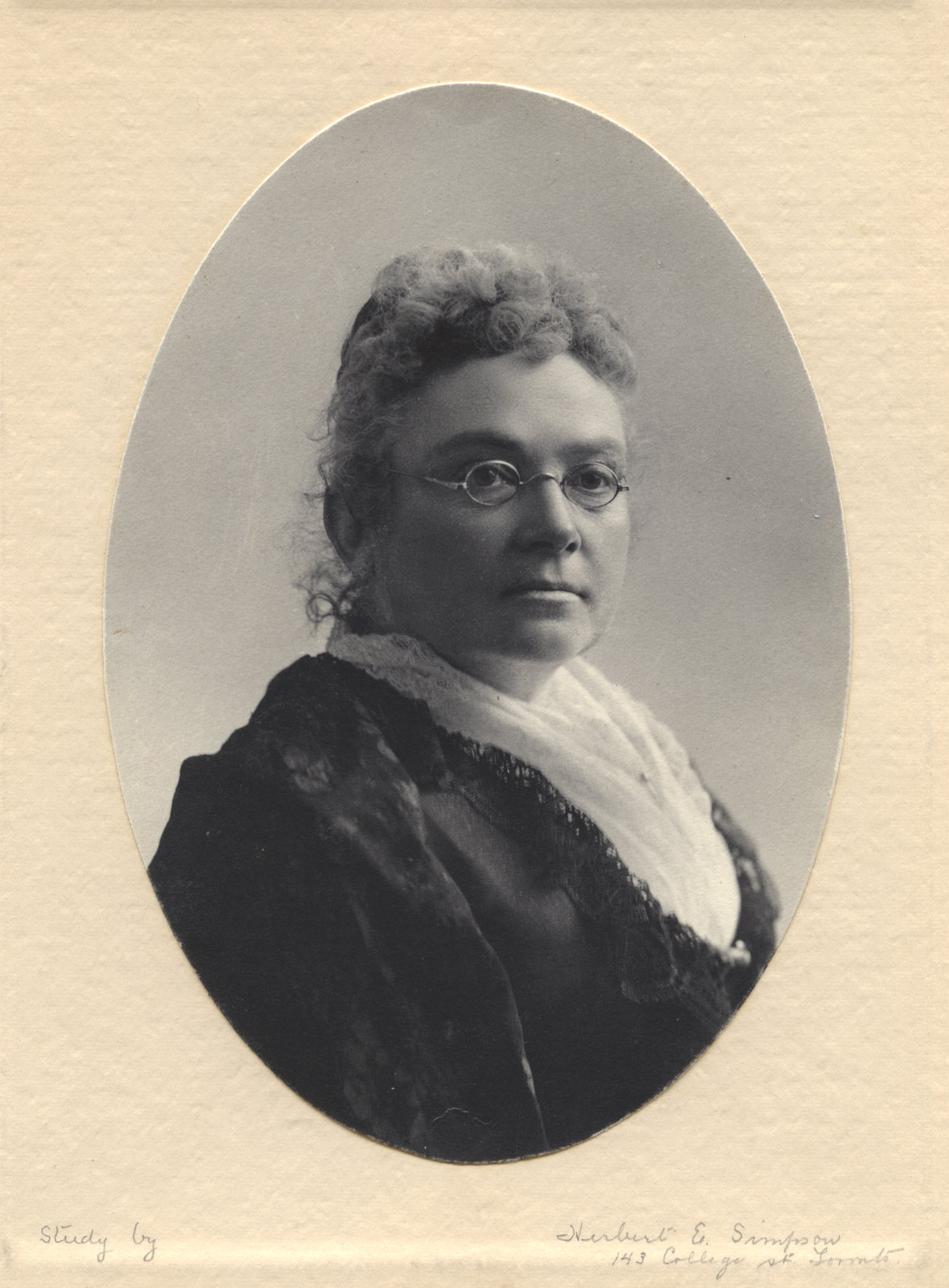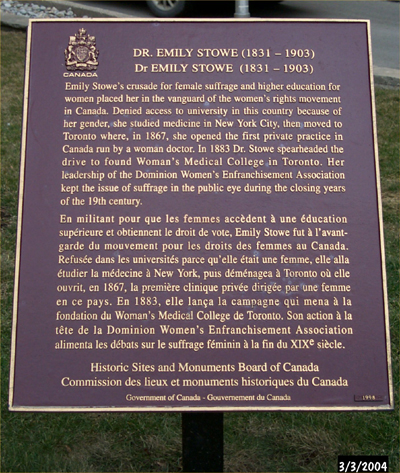Dr. Emily Stowe (1831-1903) National Historic Person
Dr. Emily Stowe was designated as a national historic person in 1995.
Historical importance: first female practising doctor in Canada; organizer of women's medical college and suffrage leader.
Commemorative plaque: 76 Grenville Street, Toronto, OntarioFootnote 1
Emily Stowe (1831-1903)
Emily Stowe's crusade for female suffrage and higher education for women placed her in the vanguard of the women's rights movement in Canada. Denied access to university in this country because of her gender, she studied medicine in New York City, then moved to Toronto where, in 1867, she opened the first private practice in Canada run by a woman doctor. In 1883 Dr. Stowe spearheaded the drive to found Woman's Medical College in Toronto. Her leadership of the Dominion Women's Enfranchisement Association kept the issue of suffrage in the public eye during the closing years of the 19th century.

© Wilfrid Laurier University Archives & Special Collections

© Parks Canada
The National Program of Historical Commemoration relies on the participation of Canadians in the identification of places, events and persons of national historic significance. Any member of the public can nominate a topic for consideration by the Historic Sites and Monuments Board of Canada.
- Date modified :